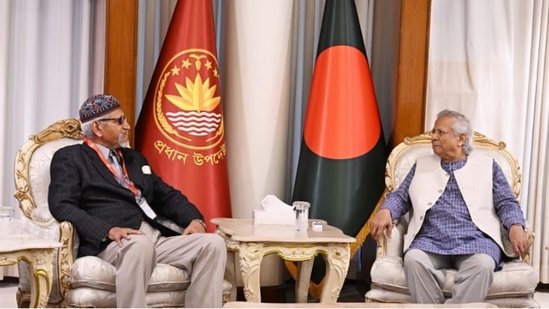Bangladesh has once again found itself at the center of controversy after retired Bangladeshi major general ALM Fazlur Rahman made alarming comments regarding a potential conflict between India and Pakistan. Rahman, who is considered to be close to Bangladesh’s chief advisor Muhammad Yunus, suggested that if India were to attack Pakistan, Bangladesh should retaliate by invading and occupying all seven northeastern states of India.
These provocative remarks come in the wake of a terror attack in Jammu and Kashmir’s Pahalgam that claimed the lives of 26 people. Rahman called for cooperation with China to achieve this aggressive plan, stating that discussions on a joint military arrangement with China should be initiated. His comments have raised concerns about the stability of the region and the potential for escalating tensions between neighboring countries.
This is not the first time that Bangladesh has been embroiled in controversy with India. Former prime minister Sheikh Hasina’s asylum in India and concerns over targeted attacks against Hindu minorities in Bangladesh have strained relations between the two countries. Additionally, Muhammad Yunus’ comments on India’s northeastern states during a visit to China earlier this year further exacerbated tensions.
Yunus referred to the northeastern states of India as the “seven sisters” and highlighted Bangladesh’s strategic position as a guardian of the ocean in the region. He suggested that this could be an opportunity for extending Chinese influence in the area, a statement that was met with criticism from leaders in India’s ruling party, the BJP. India’s external affairs minister, S Jaishankar, reaffirmed India’s commitment to the development and connectivity of the northeastern region through initiatives like BIMSTEC.
The strained relations between Bangladesh and India have also been reflected in recent economic decisions. India recently ended a trans-shipment arrangement for Bangladeshi export cargo via Indian airports and ports, citing congestion issues. These developments underscore the complex and delicate nature of relations between the two countries and the need for diplomatic efforts to prevent further escalation of tensions.

